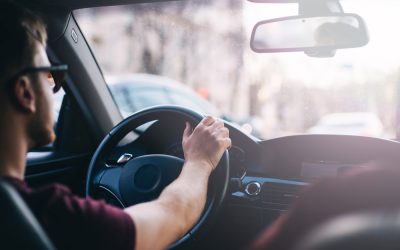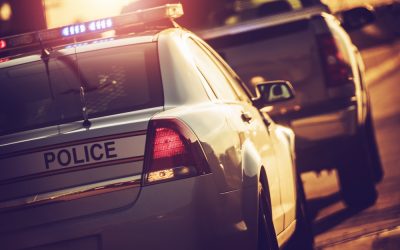
In order to secure a driving under the influence (DUI) conviction in California, prosecutors must build a comprehensive case backed by admissible evidence that proves a defendant was legally impaired while operating a motor vehicle. Mere suspicion or assumption of intoxication is insufficient. The burden of proof rests on the state to establish guilt beyond a reasonable doubt.
Demonstrating a defendant’s level of alcohol or drug impairment through scientific testing and documented observations takes center stage in DUI prosecutions. However, a wide range of additional evidence exists that can strengthen the state’s arguments before judges and juries.
From chemical test results and police officer testimony to analyses of driving patterns and personal statements made, the courts consider seven types of evidence needed for a DUI conviction in California. Understanding the key forms of proof prosecutors leverage is crucial for building your defense. A Los Angeles DUI lawyer can help challenge a prosecutor’s evidence and work toward the dismissal or reduction of your charges.
Key Evidence Required for California DUI Convictions
To prove a defendant guilty of driving under the influence under California’s Vehicle Code 23152(a) or 23152(f) for alcohol or drugs, prosecutors must present sufficient admissible evidence demonstrating impairment and an ability to operate the vehicle. Common forms of evidence include:
Chemical Test Results
Blood, breath, or urine tests measuring a driver’s blood alcohol concentration (BAC) or the presence of drugs provide highly weighted evidence. BAC readings of 0.08% or higher indicate legal impairment.
Police Officer Testimony
Observations from the arresting officer(s) detailing symptoms of intoxication, the traffic stop circumstances, the driver’s demeanor, performance on field sobriety tests, and more carry major evidentiary value.
Field Sobriety Test Performance
Officers use standardized tests like the horizontal gaze nystagmus, walk-and-turn, and one-leg stand to evaluate physical and cognitive impairment. A poor performance can suggest intoxication.
Driving Patterns
Evidence of irregular driving behaviors witnessed by law enforcement or others can imply impairment. Examples include speeding, weaving, illegal turns, failure to signal, and accident involvement.
Personal Statements/Admissions
A driver’s own statements about drinking/drug use, or admitting impairment, whether overheard by police or witnesses, hold evidentiary weight despite being contradictory to charges.
Eyewitness Testimonies
Witness accounts describing a driver’s appearance, behavior, balance, speech patterns, and operation of the vehicle around the time of driving provide circumstantial proof.
Video and Audio Recordings
Footage from police dashcams, body-worn cameras, surveillance systems or audio recordings documenting the incident create demonstrative evidence for juries.
While no single piece of evidence is definitive, prosecutors aim to establish guilt beyond a reasonable doubt by compiling this array of documentation and testimony depicting the driver’s condition and impairment.
DUI defense attorneys cross-examine this evidence meticulously, challenging its accuracy, collection protocols, and reliability of witnesses. Suppressing evidence proves key to avoiding convictions.
How DUI Defense Attorneys Challenge Prosecution Evidence
Even when prosecutors present an array of evidence aiming to prove a defendant’s intoxication, a skilled DUI defense lawyer has numerous opportunities to discredit, suppress, or cast doubt on the validity and weight of that evidence. Rigorous scrutiny at every stage is key.
Challenging Chemical Test Results
Blood, breath, and urine test results form the evidentiary backbone of most DUI cases. However, defense attorneys meticulously examine whether proper Title 17 regulations and protocols were followed, including:
- Maintenance/calibration records of testing devices
- Phlebotomist/technician qualifications and procedures
- Potentially rising or falling blood alcohol levels
- Acceptable blood/breath partition ratios
- Chain of custody for samples
Police Procedures and Testimony
The credibility of an arresting officer’s observations and testimony can be attacked based on the legality of the vehicle stop if probable cause existed for suspicion of DUI, inconsistent/missing reports, inadequate training, or biased motivations.
Field Sobriety Test Validity
Attorneys argue margin-of-error inaccuracies of roadside tests like the horizontal gaze nystagmus due to medical issues, physical factors, or environmental conditions affecting performance. Deviations from standardized administration are also grounds for suppression.
Challenging Observations of Driving
Video dashcam footage can be re-interpreted to provide innocent explanations for driving patterns initially perceived as erratic. The conditions, vehicle types, and visibility faced by witnesses are scrutinized.
Statements Taken Out of Context
Police officers have an obligation to read your Miranda Rights when arresting you. A failure to do so could render anything you say inadmissible in court.
Ultimately, a DUI lawyer’s role is to vigorously cross-examine and counter the inculpatory weight of prosecution evidence through meticulous preparation, professionally credentialed experts, and strategic legal motions. Cases hinging on flawed evidence may be dismissed or reduced upon a constitutionally sound defense. Even if the dismissal of your charges is not possible, a DUI attorney can work toward a plea bargain that can yield the most favorable outcome possible.
Call a DUI Attorney to Learn More About the Seven Types of Evidence Needed for a DUI Conviction in California
For those charged with driving under the influence infractions, recognizing how prosecutors construct cases using this evidence illuminates the need for an aggressive defense strategy that challenges questionable proof and suppresses unlawfully obtained material. With freedoms and permanent records at stake, defendants must mount an opposition to such evidence to preserve their rights and interests at every stage.
Contact a DUI attorney in Los Angeles to begin working on your defense strategy. They can explore your legal options during a complimentary consultation.







